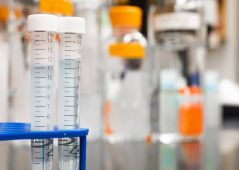KS4 Chemistry

Learn all things about chemical elements and compounds composed of atoms, molecules and ions.
This page contains resouce links to the subject of chemistry, covering topics including:
- Atomic structure and the periodic table - structure of atoms, properties and characteristics of elements
- Structure, bonding and properties of matter - types of chemical bonding, propertises of materials
- Chemical changes - determination of empirical formulae, balanced chemical equations, chemistry of acids, reduction and oxidation
- Energy changes in chemistry - measurement of energy changes, bond breaking, bond making, activation energy and reaction profiles
- Rate and extent of chemical change - factors influencing rate of reaction and reversible reactions
- Chemical analysis - distinguising between pure and impure substance, seperation techniques for mixtures of substances, quantitative interpretation of balanced equations, concentrations of solutions
- Chemical and allied industries - life cycle assesment and recycling to assessment environmental impacts, viability of recycling of certain materials, extraction and purification of metals
- Earth and atmospheric science - evidence for composition and evolution of the Earth's atmosphere, evidence and uncertainties in evidence, common atmospheric pollutants
More Information
(Please note the links below may not cover all of the topics listed above)
Limiting factors of reactions - http://www.nuffieldfoundation.org/practical-biology/investigating-effect-temperature-activity-lipase
Browning reactions, dextinisation - http://www.compoundchem.com/2015/01/27/maillardreaction/
The effect of cooking on vitamin C in cabbage | 16–18 years | Resource | RSC Education
Vegetable oils: saturated and unsaturated - https://secondaryscience4all.wordpress.com/2014/08/13/vegetable-oils/
Strawberries - http://www.sustainability-ed.org.uk/support_materials/LCA%20strawberries.pdf
Agroecology - http://www.foodspanlearning.org/_pdf/lesson-plan/unit2/lesson6-sustainability-lessonplan.pdf
Extracting oils from plants and nuts - http://www.saps.org.uk/secondary/teaching-resources/839-extracting-oil-from-plants-gcse


